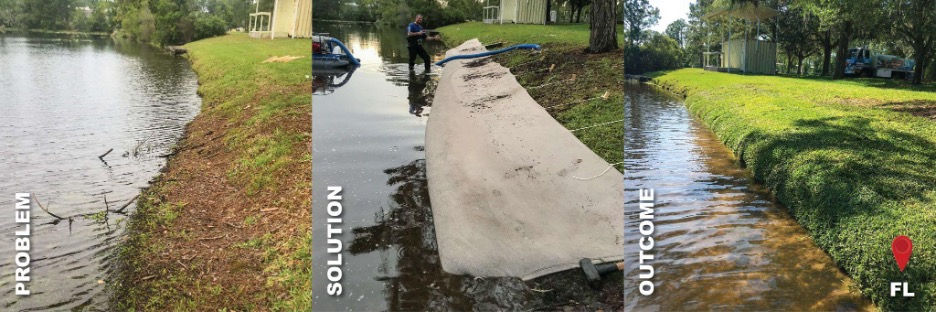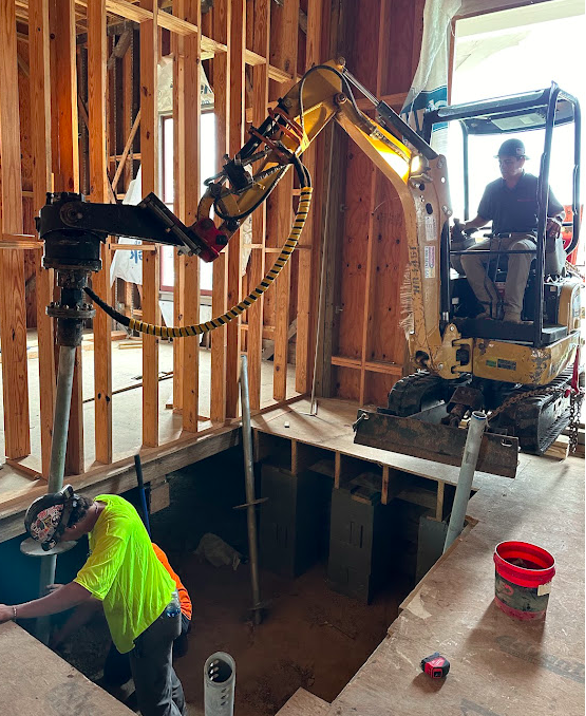Are Squeaky Floors a Sign You Need Foundation Repair in Mississippi
- burns68
- Oct 3, 2023
- 2 min read

Squeaky floors can be annoying, but they aren’t always a cause for concern. In many cases, the squeaking you hear is the result of uneven subfloors, joist problems or floorboards expanding and contracting from seasonal changes. However, in some cases, persistent squeaking and creaking may indicate underlying issues, including potential problems with your home's foundation.
Let’s explore whether squeaky floors can be a sign that you may need professional foundation repair in Mississippi.
Why Do Floors Squeak Sometimes?
Before covering the possible connection between squeaky floors and foundation issues, it's essential to understand what causes squeaky floors in the first place. Here are some of the most common reasons why floors squeak.
Subfloor movements. Squeaky floors are often the result of movements in the subfloor, which is typically made of plywood or oriented strand board (OSB). Over time, these materials can expand, contract or dry out, leading to gaps and friction between the subfloor and the flooring itself.
Fastener issues. Squeaks can also occur when nails, screws or staples used to secure the subfloor and floor become loose due to constant use or fluctuations in humidity and temperature.
Lack of lubrication. Friction between subfloor layers or between the subfloor and floor can cause squeaks. In some cases, applying a lubricant, such as talcum powder, can temporarily alleviate the noise.
Foundation problems. It is possible for creaky floors to be a sign of foundation problems, though you will typically notice other signs as well. Most foundation issues are caused by too much, too little or improperly draining water.
Signs of Foundation Problems
Squeaky floors on their own do does not indicate a problem with your foundation. However, if you notice the following signs in addition to the creaking, then you’ll want to schedule an inspection with a foundation repair expert right away. The signs to look for include:
Uneven floors. Flooring that slopes or has noticeable dips could indicate foundation settlement or shifting.
Cracks in walls or ceilings. The appearance of cracks in your interior walls or ceilings can be signs of foundation movement or settling.
Doors and windows that stick. Difficulty opening or closing doors and windows can be a sign that the frame is no longer square due to foundation issues.
Gaps around windows and doors. Gaps forming between window or door frames and the surrounding walls may mean foundation movement.
Basement or crawl space issues. Water infiltration, dampness or noticeable cracks in your basement or crawl space can suggest foundation problems.
When to Contact a Professional
If you're concerned about both squeaky floors and potential foundation problems, it's advisable to consult with a foundation specialist. They will perform a full inspection and look for signs such as uneven floors, cracks in the walls, sticking doors, etc.
If a foundation issue is confirmed, the professional will discuss your options for repair with you. If there is no foundation problem, you can follow up with a flooring professional. Fortunately, most foundation repairs are quick, easy and economical thanks to advances in poly foam injections.
While squeaky floors themselves are typically a result of subfloor issues rather than foundation problems, it's essential to pay attention to other signs that may indicate deeper structural concerns. If you suspect foundation issues or observe additional warning signs, contact Foremost Foundations and Construction for a free inspection.




Comments